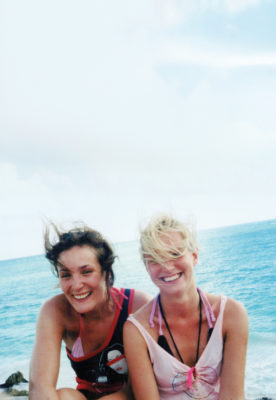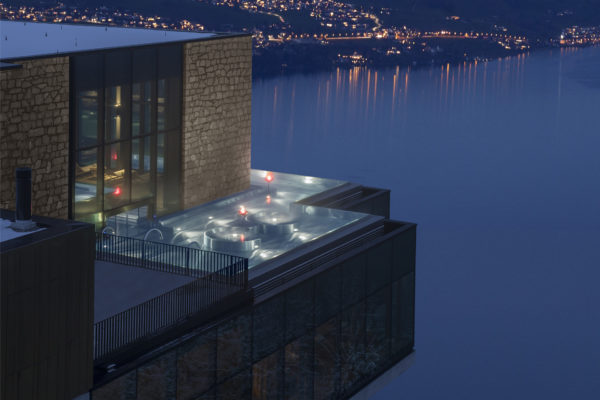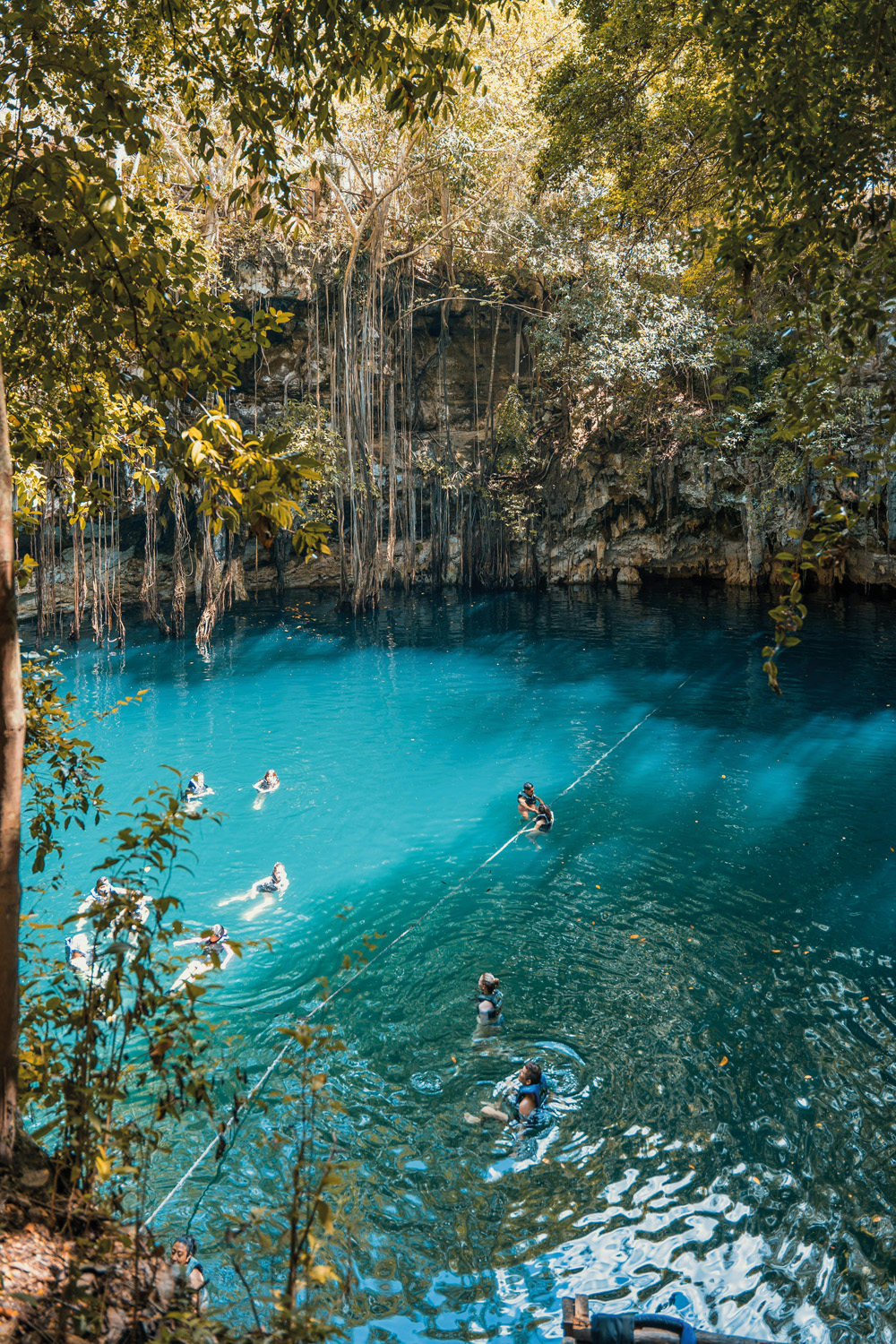
How Marine Conservation Is Transforming Luxury Travel In Mexico
By
6 months ago
Riviera Maya is rewriting Mexican travel and working to preserve its precious ecosystems
Mexico’s Riviera Maya is undergoing a quiet revolution. Luke Abrahams discovers how a marine-led conservation movement is redefining luxury travel.
Reef Encounters On The Riviera Maya
The Riviera Maya. For years, it has been dubbed a package holiday all-inclusive nightmare, with a consumption culture to match. Grand white sandy beaches and quixotically blue waters are part of the allure, as are cheap rates. But with a new narrative of luxury doing good, that’s all slowly beginning to change. While beach bods and cenotes are still high on the tourist agenda, Yucatán is slowly rewriting textbook travel to this region of Mexico by shaping a different kind of marine-led, conservation-first tourism model.
But why? Scientists classify this Central American wonder a ‘megadiverse’ country as it holds a significant portion of the world’s biodiversity. As well as being home to a high proportion of endemic species, Mexico is also a centre for the origin of many globally vital plant and animal genera. Its ecological standing is just as pivotal. Mexico’s diverse ecosystems, including marine biospheres, are vital for maintaining global biodiversity and regulating the climate. In fact, few travellers realise that the country is home to the second-largest barrier reef system in the world: the Mesoamerican Reef.
Stretching 700 miles, its importance goes far beyond the seas and gulfs of Mexico. Organisations like The Nature Conservancy and the World Wildlife Fund are working to protect the reef through several conservation initiatives, creating a network of protected areas committed to combating the threats the coral system is facing (political corruption, overtourism, global warming, pollutants and erosion). An internationally led report produced by the Global Coral Reef Monitoring Network – gathered across 73 countries, including Mexico – found that 14 percent of the planet’s reefs were lost between 2009 and 2018.
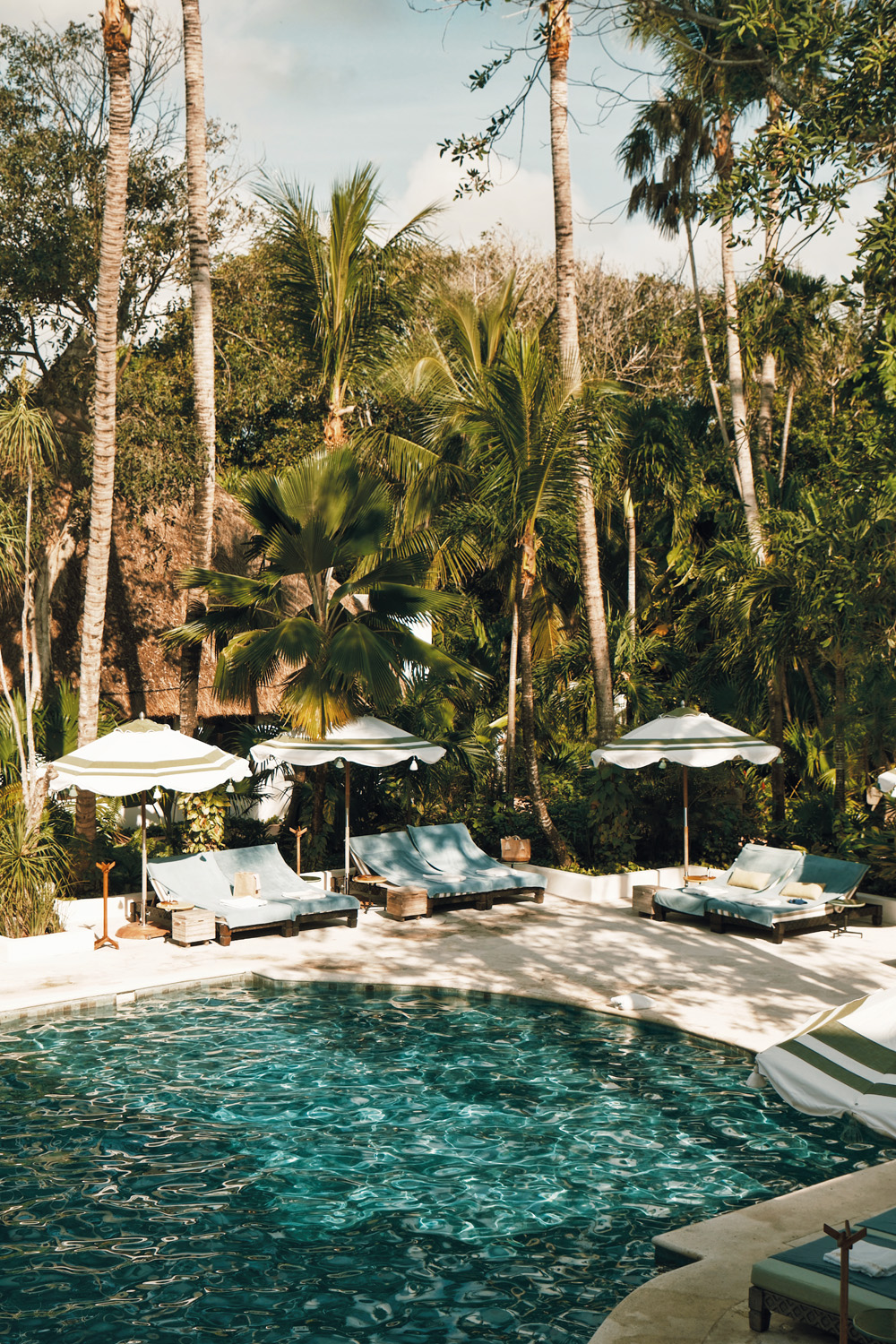
The pool at Belmond Maroma
Yucatán’s tourism industry is responding by emphasising the need for new infrastructure, awareness and marine conservation programmes spearheaded by positive-impact tourism models. One of the first hotspots to emerge from this conservation impulse is Maroma, a Belmond hotel. Set on the shores of the Riviera Maya, the hotel sits on a coast virtually swallowed whole by nature. On the horizon, reef sharks, manta rays and a medley of endangered marine turtles thrive in their nesting grounds, while inland, lowland tropical jungle runs riot through the lush bush of the Yucatán Peninsula – home to elusive jaguars, pumas, and nearly 500 species of birds.
Beyond the manicured beach and Tara Bernerd’s chic redesign, energy, carbon output and the oceans are all under the hotel’s microscopic radar. To help broaden its green credentials, the luxury brand has partnered with global environmental organisation Parley for the Oceans. Its purpose is to connect the world’s greatest thinkers, creators and leaders to help raise awareness for the fragility of the ecosystems that make up the oceans – something they dub ‘Earth’s largest and most vital biome’.
Their crusader on the ground is Claudia Padilla Souza, who I meet on an early morning coral reef mapping expedition. With over 20 years of experience behind her – thanks to a lengthy career at the National Commission of Fishing – Padilla Souza’s specialisms in reefs and community outreach programmes have struck a chord with guests and locals. ‘It’s all about trying to find a solution to help control the effects of climate change on our reef. Reefs are not as adaptable as us humans. They take millions of years to grow, and the aim of the programme and partnership is to make people see the effects their actions are having on it.’
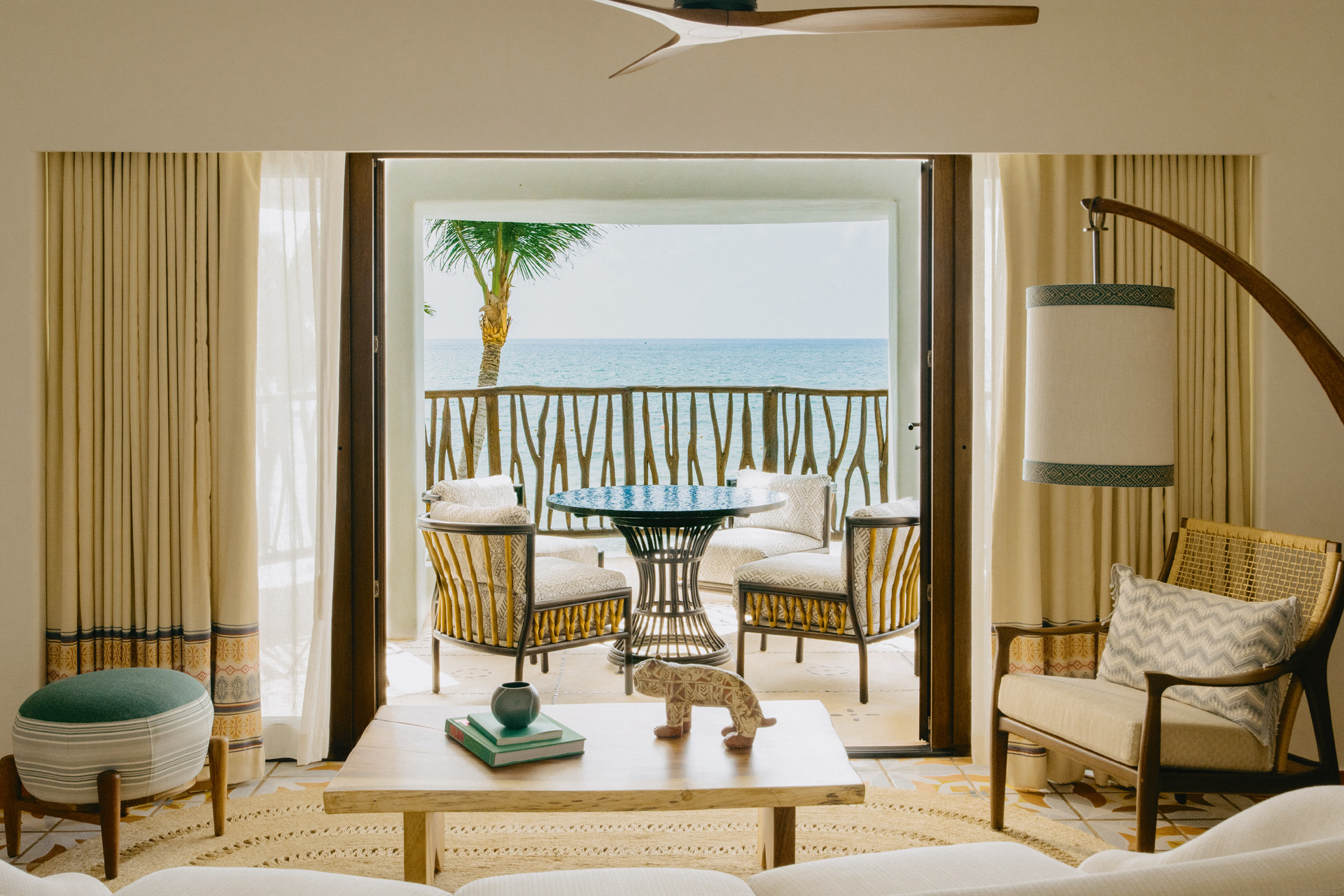
Beyond Tara Bernerd’s chic redesign at Belmond Maroma, its energy, carbon output and the oceans are all under the hotel’s microscopic radar
Redefining travel to this region of the Yucatán is as personal as it is necessary. Osvaldo Páez, the hotel’s sustainability chief, has spent several months crafting experiences to spur a new wave of interest in positive-impact-led tourism to the coral coast. Since its reopening as the ‘new Maroma’, the brand has implemented – in addition to the Parley partnership – several fauna research programmes and created artificial reefs alongside scientific experts like Padilla Souza.
‘We want to make sustainable tourism fun, as well as educational and interactive for guests and the people who work here. The mission is to bring a wider consciousness to the climate issues Mexico faces, while preserving our national heritage. It’s led by a passion to protect and to conserve and to show that luxury tourism can have a positive impact beyond what’s perceived, and we want other hotels like ours to do the same.’
The health of the coastline is also a focus of neighbouring hotel Chablé Maroma. The Mexican boutique brand’s philosophy is grounded in ‘responsible tourism for the nation’. Guided by a strategy adopted from the UN’s Sustainable Development Goals initiative, wildlife conservation and rubbish collection are integral to its scaled brand operations across the peninsula to the group’s flagship property, Chablé Yucatán.

Reef conservationist María del Carmen García Rivas
Local experts advise the brand. In nearby Puerto Morelos I meet María del Carmen García Rivas. A researcher and ranger with 25 years of experience, she was one of Mexico’s first diving instructors, and among the first women to work alongside the navy in the country. Puerto Morelos National Park is very much García Rivas’ home turf, where she focuses on coral reef conservation and marine biology research. At our chance meeting at the port she gives it to me straight: ‘Coral reefs are dying, and it is the beginning of the end. The problem is us. People do not look to the future. They think of the now, and that is the real issue. Artificial reefs are good and all, but they are like makeup. They are not a solution.’
Over the years, she has seen the reef collapse at a colossal rate due to climate change, unsustainable fishing practices, pollution, coastal development and ‘ignorance’. Perplexed, I ask her – so what’s the point if the future is so bleak, and what can we realistically do about it? She laughs, pauses, stares at me and tells me to look at the ocean. As I gaze at the cerulean and turquoise shades of the reef, she says: ‘People don’t realise how important these places are to our future. Consumption culture is the principal problem – and the model of the capitalist economy. My clothes I am wearing right now are 20 years old. I don’t need Dior or Chanel. I need air in my lungs, and that is what these delicate reef systems give us. Without them, we would be dead.’ And with that, I returned home, not just enlightened but inspired to do more.
BOOK IT
Journey Latin America offers seven days in Mexico’s Yucatán Peninsula combining the Riviera Maya with Mérida from £5,010pp, including flights, transfers, private excursions and accommodation at Chablé Yucatán and Belmond Maroma on a B&B basis.
Luke’s return flights from London Gatwick to Cancun had a carbon footprint of 2,359 kg of CO2 e. ecollectivecarbon.com





